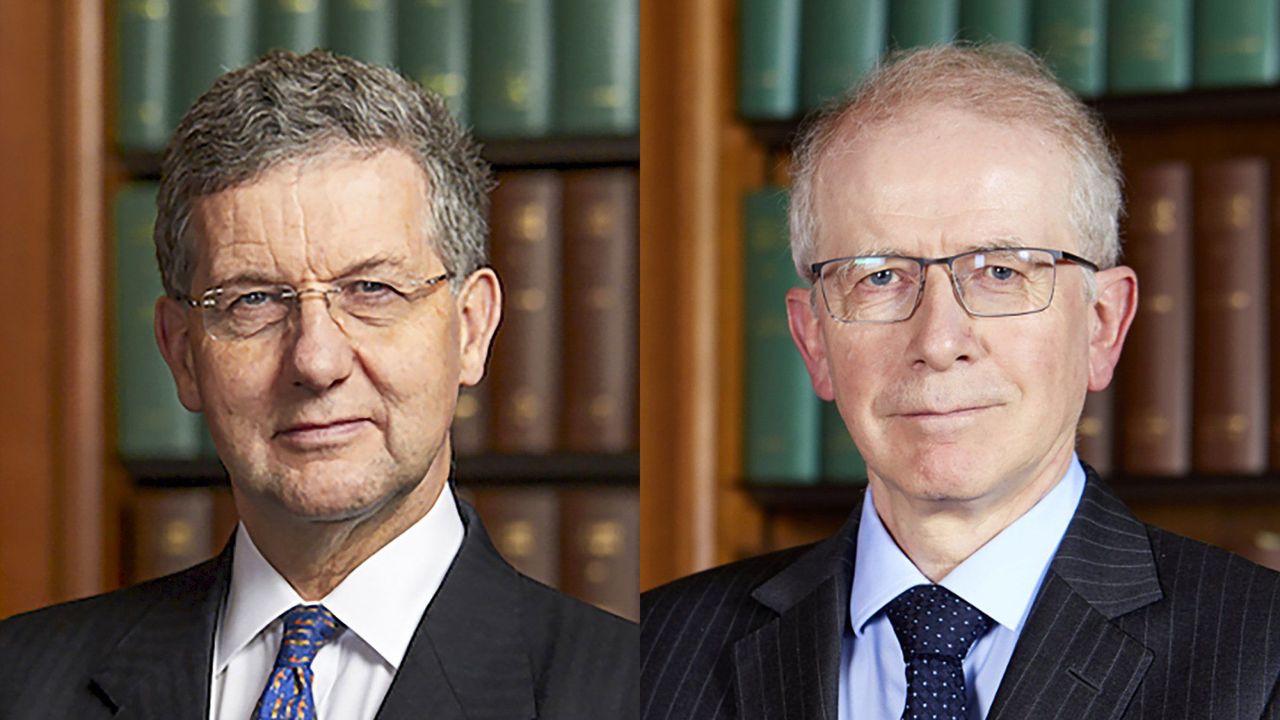Hong Kong News

Law Society defends Hong Kong’s judiciary after withdrawal of UK judges
The professional body for Hong Kong’s solicitors has defended the city’s judicial independence after an international group of lawyers expressed alarm over Britain’s decision to withdraw its last two serving judges from the Court of Final Appeal due to concerns over the national security law.
In a letter to the president of the Commonwealth Lawyers Association (CLA), which is headquartered in Britain, Law Society president Chan Chak-ming said he wanted to clarify “misconceptions about our judicial system” contained in a statement it issued last week.
While he regretted the resignations of United Kingdom Supreme Court president Lord Robert Reed and vice-president Lord Patrick Hodge from the Court of Final Appeal, Chan said there were no issues with judicial independence in Hong Kong.
“Rather, the concern stems from external interference with the judges’ decision in continuation of their judicial role and the muddling of “national interests” of overseas judges in the performance of their judicial functions which should remain independent of any such outside interests,” Chan wrote.
Reed and Hodge submitted their resignations from the city’s highest court on March 30, ending a practice that stretched back to Hong Kong’s handover from British to Chinese rule in 1997.
Reed said, having consulted the UK administration, he could not sit on both the UK Supreme Court and Court of Final Appeal “without appearing to endorse an administration which had departed from values of political freedom, and freedom of expression”.
The two judges’ withdrawal was supported by British Foreign Secretary Liz Truss and Deputy Prime Minister Dominic Raab, who in a separate statement said the city had witnessed a “systematic erosion of liberty and democracy” since the imposition of the national security law. British judges who continued to sit on the Court of Final Appeal risked “legitimising oppression”, they argued.
Beijing imposed the security law in June 2020 to target secession, subversion, terrorism and collusion with foreign forces after anti-government protests rocked the city for months the following year.
Responding to the resignations, Hong Kong government officials and legal bodies accused the British of putting politics before the law, with Chief Executive Carrie Lam “vehemently” refuting the decision was related to the security law or the right to free speech and political freedoms.
In its April 1 statement, the CLA expressed concern over the departure of the two non-permanent judges from the top court.
“The CLA urges the authorities in Hong Kong to maintain a judiciary which is independent,” it said.
Legal scholar Simon Young Ngai-man from the University of Hong Kong said having serving judges working together from different jurisdictions would require confidence in the arrangement.
“In this instance, the UK government has lost confidence in the arrangement and thus the serving UK judges had to resign,” Young said, adding he did not believe the move had anything to do with “external interference with the judges’ decision” as stated by Law Society president Chan.
Senior counsel Ronny Tong Ka-wah, a top adviser to Lam, said the fact that nine out of the 10 remaining foreign non-permanent judges had indicated they would continue to serve in Hong Kong spoke “volumes” about the integrity of the city’s judicial system.
“I am therefore firmly of the view that the recent resignations of the two UK judges are but a political gesture without factual support and any concerns as to judicial independence of Hong Kong are therefore wholly misplaced,” he said.
Former director of public prosecutions Grenville Cross said he also believed the resignations were due to political pressure from the British government.
 Lord Patrick Hodge and Lord Robert Reed.
Lord Patrick Hodge and Lord Robert Reed.
Calling the nine judges’ decision to remain “excellent news”, Cross said: “Since 1997, the overseas judges have contributed greatly to local jurisprudence, and this will now continue.”
Mark Daly, a human rights lawyer, said the resignations should not be politicised and argued they were instead a rule of law issue. He noted the departing judges had expressed concerns over the national security law and the administration departing from values of freedoms.
“The rule of law includes protection of human rights and citizens’ participation in rule-making so it may be that this is the concern that has led to the resignations,” he said.
The CLA is an organisation of lawyers, law societies and bar associations practising in the Commonwealth, with its members including lawyers, the judiciary and government officers as well as academics and legal professionals.
Reed and Hodge were among 12 top overseas jurists serving at Hong Kong’s Court of Final Appeal, a long-standing arrangement that stood as a strong endorsement of the city’s rule of law.
Since the handover, the top court has appointed judges from other common law jurisdictions, including Britain, Australia, Canada and New Zealand, to preside over its hearings as an acknowledgement that Hong Kong’s rule of law remained intact.
Last year, Baroness Brenda Hale, then president of the British Supreme Court, asked the city’s judiciary not to renew her contract, citing logistical reasons. Despite denying any connection between the national security law and her decision to quit, Hale said the law had cast uncertainties on “protests and civil liberties and the likes”.
Australian Judge James Spigelman also decided to resign from the city’s top court in September 2020, two years before the end of his tenure and several months after the national security law was enacted.
Spigelman had told Australia’s national broadcaster that he had resigned for reasons “related to the content of the national security legislation”, but offered no further explanation for his decision.
The remaining 10 judges, including six from Britain and the rest from Canada and Australia, are all retired jurists, meaning they are not bound by decisions made by their governments, should more withdrawals take place. Nine have told the Post they would remain.











